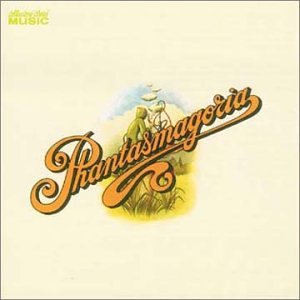
BY HASAN MURAT SÜMER (EE/IV)
hasan.sumer@ug.bilkent.edu.tr
Songs named after women are not uncommon; but the name “Melinda” has such a nice sound to it, seeing the name in a song’s title makes me want to listen to it. Let’s take some songs about Melinda and build a story for her. Beware, it will be a sad one.
“Come Away Melinda” was originally written by Fred Hellerman and Fran Minkoff, but the most famous version belongs to Uriah Heep, from their debut album, “Very ‘Eavy… Very ‘Umble” (1970). Melinda is a little child who was born in the worst of times. She has no mother, people around her are unhappy, and her father tells her that things will never be as good tomorrow as they were yesterday. Yet, Melinda finds some joy in a picture book her father gave her and her personality as a dreamer begins to develop. This song doesn’t really fit the heavy nature of the band. But the sweet, misty sound of the mellotron immediately attracts attention and, along with the unforced vocals and the acoustic guitar, provides a relaxing feel that contrasts with the dark lyrics. This is the most simply-structured song featured in the present column. As you’ll see in the next paragraph, Melinda’s adventure is about to get bumpy.
 “Melinda (More or Less)” from the Curved Air album “Phantasmagoria” (1972) has the word “folk” written all over it, and it’s the ballad I love most. Melinda is now a lovely young lady, facing difficulties in life. She is different from others, and even her friends seem to be deaf to her needs. Every day is the same, and she’s not sure if she even wants to wake up again. So she finds the solution in dreams and fantasies; she tells the world that she’ll not be played like just another instrument of fate. In their early years, Curved Air was known for the central role of the violin and the female vocals of the beautiful Sonja Kristina in their music. Besides having a well-trained voice in the alto range, Kristina has a lively style in her singing: it can change between opposite poles of feeling often and suddenly. For this particular song, she starts as if she is telling a folktale, then reflects on Melinda’s sadness, switches to offering encouragement to Melinda to take on the world, and finishes by returning to the folktale. The ballad is driven by an excellent harmony of flute, violin, acoustic guitar and harpsicord, with the flute the dominant driver. However, it is the short yet gorgeous violin solo that carries the ballad to the top. One critical problem for the song is that the sound of the harpsichord is turned down a lot. Seriously, don’t listen to this track without headphones.
“Melinda (More or Less)” from the Curved Air album “Phantasmagoria” (1972) has the word “folk” written all over it, and it’s the ballad I love most. Melinda is now a lovely young lady, facing difficulties in life. She is different from others, and even her friends seem to be deaf to her needs. Every day is the same, and she’s not sure if she even wants to wake up again. So she finds the solution in dreams and fantasies; she tells the world that she’ll not be played like just another instrument of fate. In their early years, Curved Air was known for the central role of the violin and the female vocals of the beautiful Sonja Kristina in their music. Besides having a well-trained voice in the alto range, Kristina has a lively style in her singing: it can change between opposite poles of feeling often and suddenly. For this particular song, she starts as if she is telling a folktale, then reflects on Melinda’s sadness, switches to offering encouragement to Melinda to take on the world, and finishes by returning to the folktale. The ballad is driven by an excellent harmony of flute, violin, acoustic guitar and harpsicord, with the flute the dominant driver. However, it is the short yet gorgeous violin solo that carries the ballad to the top. One critical problem for the song is that the sound of the harpsichord is turned down a lot. Seriously, don’t listen to this track without headphones.
I would have preferred not to write about Opeth, leaving this instead to the other Bilkent News music writer, since he is the true Opeth buff. But their song completes Melinda’s story. “Face of Melinda” from the album “Still Life” (1999) is one of those early Opeth songs whose vocals are quite clean. Melinda has failed to gain anything from all her chances; she has been refused happiness by society, which forces her into a living hell she doesn’t want. Nobody truly loves her anymore. She will never be happy again, and will only be remembered by one man, who loved her in the past but is unreachable now. Because I didn’t want her to be a harlot, I may have forced the meaning of the lyrics a little to find a proper ending for Melinda’s story–but what can I do, sometimes? The song is actually a suite consisting of two parts. The first is a slow, mellow section led by an acoustic guitar and somewhat jazzy drum parts, which runs about four and a half minutes. Akerfeldt has a soft, romantic touch to his singing here, which completes the feel of a love song that is suggested by the acoustic nature of the music. The second part is more like the Opeth we know, as it suddenly picks up in speed, loudness and distorted guitar riffs. Akerfeldt isn’t singing like a romantic lover now; he sings with rage and despair in harmony with the story as it approaches its unhappy ending. A killer guitar solo closes the song. “Face of Melinda” is an excellent example in terms of showing that a death metal band like Opeth can still create great relaxed music; even the second part is not as intense as other Opeth songs up to that time. It’s a great property, considering that they have released lots of stuff that is much more relaxed since then, such as “Heritage” (2011), “Pale Communion” (2014) and “Damnation” (2003), which doesn’t even belong to the metal genre.
